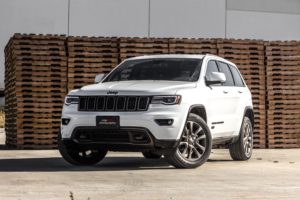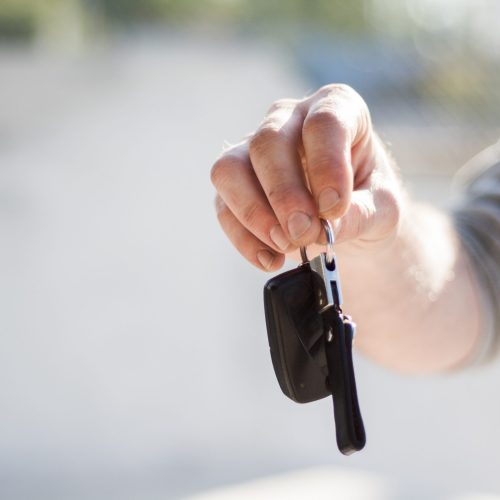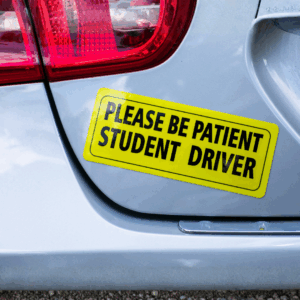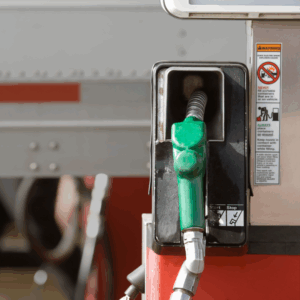When you are looking for a good used car, you want the best deal for your money. Usually you are looking for a car that will still last at least a few years and will not cost you an arm and a leg in upkeep and repairs, and a car that will be safe for you and your family.
3 tips for buying a used car from the experts:
- A good place to start is to go to the experts – Automotive Technicians. They see a variety of makes and models of vehicles day in and day out and they recognize patterns of parts and systems that fail. Technicians see and hear and smell things that we don’t – not only under the hood, but under the car when it is on a lift. Some cars look really good on the outside, but there may be hidden (to the person who doesn’t work on cars everyday ) signs that the vehicle has damage from an accident that was not repaired correctly, rust that is not readily visible, poor history of maintenance that takes its toll, and possibly even just normal wear and tear that will need attention soon.
- When you are considering purchasing a used car, do some research on the yearly maintenance and repair costs for the specific year, make, and model you are looking at and the Consumer Report (or other reputable site) ratings. For example, Repair Pal will give you a comparison of a Honda Accord vs. a Subaru Legacy that is important to know. The reliability rating of an Accord is 4.5 (out of 5) and a Legacy is 4.0. Repair costs per year average $400 on the Accord and $563 on the Subaru. That difference in price may or may not make or change your decision, but knowing that you should plan on $968/year for BMW repairs might make you look at your budget more closely and decide if the enhanced driving experience is worth the extra money. Knowledgeable Automotive Service Advisors are also a wealth of information on maintenance and repair costs and what they see come through the door every day.
- Our best tip on buying a used car is have it inspected by a skilled Automotive Technician before you make that purchase, whether you are buying from a dealer or a private individual. A Pre-Purchase inspection runs about $185 for a comprehensive inspection of all systems and body with a detailed written report. It is the best money you will ever spend during a used car buying experience. Not only will you be a more knowledgeable buyer, but you will know what repairs are needed now (or will be soon) and the cost of the repair…valuable information when negotiating a fair price. We invite our customers to come in the shop and look under the car or under the hood themselves, and we can show you what the technician is seeing. You may even find out that the car will cost more to repair than it is worth- no one wants to buy a “money pit”! We hate to see one of our customers bring in a car that they already purchased and then find out that it requires extensive repairs – no one is happy in that situation.

Here is recent example. A customer that was looking to purchase a used vehicle from a local dealership brought in a 2009 Scion that appeared shiny and clean. However, when our technician drove the car, he heard wheel bearing noises and could feel that the clutch system was on its last legs – both relatively significant repairs cost-
wise. Next, the same customer brought in an older car, a 2005 Honda Accord for inspection. And even though it was an older car, it was in much better shape. For the money and expected repair costs down the road, the Honda was a much better prospect and the customer purchased the Honda. Wouldn’t you like to feel more comfortable when you hand over your hard-earned money for a used vehicle??
One car was brought in by a customer for some routine maintenance, shortly after he had purchased a vehicle. When our technician put the car up on the lift, it was apparent that there was a significant amount of rust. Even if a person had crawled under the car to look, it would have been difficult to see because someone had used black spray paint to cover the rust! Many cars brought here from the East coast by dealers or by people just moving into the area have rust problems that we do not generally see in Colorado Springs.
Technicians also can tell if the vehicle has been in a significant collision and if there is body or suspension damage that might cause problems down the road. If the frame is bent or there are “witness marks” that show that bolts have moved position slightly, it is a telltale sign that things are not straight. These types of anomalies can only be seen upon close inspection.
An experienced technician also can hear things upon starting a car (rattle noises vs. quiet and smooth), belt noises when starting or running, and slight knocking sounds, etc. that an average person would miss. One of our technicians also said he can “smell” when something is not right – old oil, rancid coolant or other fluids. Technicians have trained ears that can hear faint engine noises that most of us would not notice.
Technicians can tell if a car has had consistent maintenance by seeing if there is black sludge or carbon build up through the oil fill cap, they can see if the seals and gaskets are hardened and developing leaks, and the color and clarity of the fluids which shows if they have been changed. When driving, fuel slowly mixes with engine oil and fuel can harden seals, causing them to leak. More frequent oil changes results in less fuel in the oil and less carbon and sludge build up, therefore less wear and tear on all the parts.
These are examples of what is visible when our technicians look at a car from a different perspective. Having a Pre-Purchase Inspection completed before buying that used car will make you a more knowledgeable buyer, armed with information that will help you negotiate an equitable price based on the condition of the car and on work that the car may soon need.
A few red flags that our experts say to be looking out for:
- Where did the car come from? East coast cars generally have problems with rust.
- Is the car too clean?? Some used car dealerships pressure-wash the undercarriage and/or engine, which makes the car look nice, but conceals any obvious oil and/or fluid leaks.
- Was the vehicle in an accident or involved in a flood or natural disaster? Water damage would be a concern. If the vehicle has been in an accident, was it repaired correctly?
- High mileage for the year of the car (mileage per year should run about 10,000 miles)
- Towing hitch – what has the car been used for? Within weight restrictions for that vehicle towing levels or has the transmission been abused?
- What has the car been used for? Off road?
- Has the vehicle been maintained inside and out? Has the car been “babied” or “has it been rode hard and put away wet”?
When buying a used car, you need to hope for the best and plan for the worst. Even if you have an inspection and do your research, you are still buying a used car that may have some needed repairs or deferred maintenance that is not apparent at the time of purchase. We have even seen cars come in with intermittent problems (some days there is a problem, sometimes not), so test driving a car at least a couple of times is worthwhile.
An independent repair shop has no skin in the game – we can be more objective when inspecting a prospective vehicle for purchase. Sometimes you need to “kiss a few toads” before you find that vehicle that is in reasonable shape and meets your needs! Let our expert Technicians and Service Advisors in Colorado Springs help you become more knowledgeable in making that informed purchase decision.
Call us today for a pre-purchase inspection!



